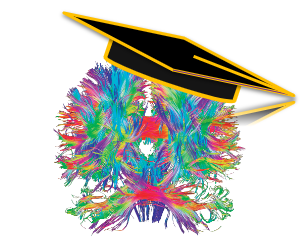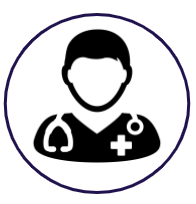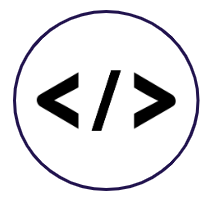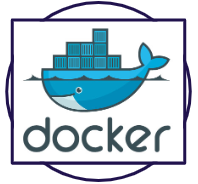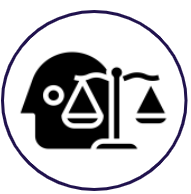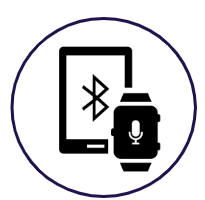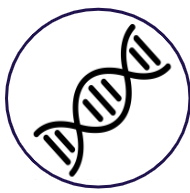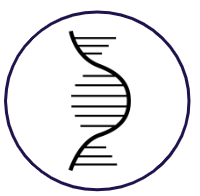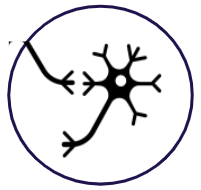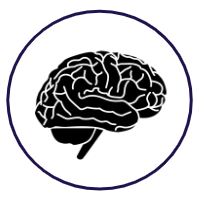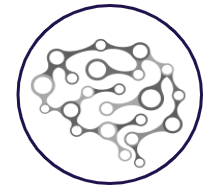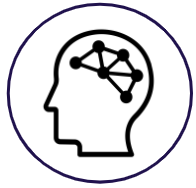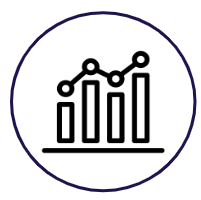Krembil Centre for Neuroinformatics Summer School
Solving Problems in Mental Health using Multi-Scale Computational Neuroscience
Distribution Date: June 2022
Krembil Centre for Neuroinformatics, Centre for Addiction and Mental Health
Join us for the Krembil Centre For Neuroinformatics Open House!
Krembil Centre for Neuroinformatics Virtual Open House
The Krembil Centre for Neuroinformatics is excited to host its Annual Open House on Friday, June 24 starting at 10am.Topic | Instructor | Video | Slides | ||||||
|---|---|---|---|---|---|---|---|---|---|
A Multiscale Approach to Brain Disorders |
| Watch on CrowdcastYouTube (1:09:33) | slides | ||||||
Problems and opportunities in the diagnosis and treatment of major depression |
| Watch on CrowdcastYouTube (1:29:28) | slides |
| Topic | Tutorial Videos | Online/ Online Tutorials | Prerequisit to | ||
|---|---|---|---|---|---|
| R | R Workshop Material (Apr-Jun 2022) |
| |||
| Python | Python | Introduction to Python |
| ||
| Git/Github | Introduction to Git and GitLab | ||||
| Linux/Bash | Introduction to Linux and Bash (Youtube) | ||||
many recordings available via from last falls series. 2021 Fall - SCWG Workshop Recordings
2022 Watch Party Time
(EST)Session | Instructors | Video | Materials | |||||||||||
|---|---|---|---|---|---|---|---|---|---|---|---|---|---|---|
| 9:30-11:00am | Workshop 1: Guiding principles for FAIR and open science -Erin Dickie, Sejal Patel
| Watch on Crowdcast | slides |
| Watch on Youtube | slides | ||||||||
Workshop 2: Tools for Reproducible Science - | 11:00-12:30pm | Workshop 2: Tools for Reproducible ScienceErin Dickie, Sejal Patel
| Watch on YouTubeWatch on Crowdcast | |||||||||||
2022 Watch Party Time
Topic | InstructorVideo | Materials | |||||||
|---|---|---|---|---|---|---|---|---|---|
Lecture 1: | Introduction Introduction to AI Ethics -Daniel Buchman | Watch onCrowdcast | 10:30-12:00pmYouTube (1:22:07) | slides | |||||
Lecture 2: Fairness and Health Equity - | Marta Maslej & Laura Sikstrom | Watch onCrowdcastYoutube (1:06:36) | slides | 12:30-2:00pm | |||||
Workshop 1: Research Design, Data Collection, Model Construction and Validation -Part 2: Intersectional Bias AssessmentMarta Maslej & Laura Sikstrom | Watch onCrowdcast | code (githubYoutube (52:27) | 2:00-3:30pm | Workshop 2: Analysis, Interpretation and Knowledge Exchange and/or Translation | Marta Maslej & Laura Sikstrom | Watch on Crowdcast | |||
All videos previously recorded July 6th, 2021 as part of the KCNI Summer School
Watch Party
Time (ESTSession | Instructor | Video | Materials | ||
|---|---|---|---|---|---|
| 9:30-11:00am | Lecture 1: Digital Health for Mental health | Abhi Pratap | Watch on Crowdcast | Youtube (1:20:28) | 11:00-12:30pm |
Workshop 1: accessing reproducible datasets from Synapse as part of integrated workflow | Abhi PratapWatch on Crowdcast | YouTube (1:15:12) |
The workshop demostates how to work with the Synapse platform.
| Expand | ||
|---|---|---|
| ||
Workshop 1 will use push and pull data to the synapse platform for sharing biomedical datasets using the
|
Session | Instructor | Video | Materials | ||
|---|---|---|---|---|---|
Lecture 1: Basics of genotype, central dogma, GWAS, and polygenic risk scores | Dan Felsky | YouTube (1:28:17) | Watch on Crowdcast | ||
Workshop 1:Intro to transcriptomic data types, including single-cell and bulk RNAseq | Dan Felsky | Managing genotype data using PLINK | Dan Felsky | YouTube (1:27:18) | code (GitHub) |
| Workshop 2: Calculation of polygenic risk scores in PRSice | Dan Felsky | YouTube (1:53:34) | code (GitHub) | ||
| Considering population stratification and admixture in modern GWAS; concepts and tools | Dan Felsky | Register for the live webinar | Watch on Crowdcast |
All videos previously recorded July July 7th, 2021 as part of the KCNI Summer School
Session | Instructor | Video | Materials | |
|---|---|---|---|---|
Lecture 1: Transcriptomics at the single-cell and bulk level level | Shreejoy TripathyWatch on Crowdcast | YouTube (1:29:08) | slides | |
Workshop 1: Intro to transcriptomic data types, including single-cell and bulk RNAseq | Dan Felsky | Sonny Chen | YouTube (1:19:17)Watch on Crowdcast | |
Workshop 2: Explore cellular changes in major depression using bulk and single-cell RNAseq data | Dan Felsky | Keon Arbabi | YouTube (1:15:14)Watch on Crowdcast |
All videos previously recorded July 7th, 2021 as part of the KCNI Summer School
TA's: Keon Arbabi, Sonny Chen, Micaela Consens, Amin Kharaghani
Session | Instructors | Video | Materials |
|---|---|---|---|
Lecture 1: Simulating brain microcircuit activity in mental health | Etay Hay & Frank MazzaWatch on Crowdcast | YouTube (1:20:43) | slides |
Lecture 2: Simulating EEG from brain microcircuits in mental health | Etay Hay & Frank MazzaWatch on Crowdcast | YouTube (1:11:04) | slides |
Workshop 1: Simulating and analyzing spiking from neurons and microcircuits | Etay Hay & Frank MazzaWatch on Crowdcast | YouTube (1:39:51) | |
Workshop 2: Simulating and analyzing EEG signals from brain microcircuits | Etay Hay & Frank MazzaWatch on Crowdcast | YouTube (1:30:41) |
All videos previously recorded July 8th, 2021 as part of the KCNI Summer School
Session | Instructors | Video | Materials |
|---|---|---|---|
Lecture 1: Introduction to neuroimaging connectomics | Erin Dickie & John GriffithsWatch on Crowdcast | YouTube (1:47:22) | slides |
Workshop 1: Calculating Neuroimaging Connectomes | Erin Dickie & John GriffithsWatch on Crowdcast | YouTube (1:39:04) |
Session | Instructors | Video | Materials |
|---|---|---|---|
Lecture 2: Intro to whole-brain modelling (Lecture) | John GriffithsWatch on Crowdcast | YouTube (1:24:44) | |
Workshop 2: simulating whole-brain activity, EEG, evoked responses, brain stimulation | John GriffithsWatch on Crowdcast | YouTube (1:16:10) |
All videos previously recorded July 9th, 2021 as part of the KCNI Summer School
Time (EST)
Session | Instructor | Video | Materials |
|---|---|---|---|
Lecture 1: |
Modelling Cognition using Bayesian Inference | Andreea Diaconescu |
YouTube (1:28:14) | slides |
Workshop 1: |
Modelling Abnormal Beliefs | Daniel Hauke | YouTube (1:15:04) |
| code (github) | |
Lecture 2: |
Integration of Neuroimaging: Dynamic Causal Modelling for fMRI and EEG Data | Andreea Diaconescu |
| , Colleen Charlton | YouTube (1:32:42) |
| slides |
Workshop 2: |
Dynamic Causal Modelling for fMRI: Extensions and Simulations | Peter Bedford, Povilas Karvelis | YouTube (1:22:21) |
| code (github) |
All videos previously recorded July 12th, 2021 as part of the KCNI Summer School
TA's: Colleen Charlton, Daniel Hauke, Peter Bedford, Povilas Karvelis
Session | Instructor | Video | Materials | ||
|---|---|---|---|---|---|
Lecture 1: Population-based resources and the BrainHealth Databank | Joanna Yu | YouTube | slidesWatch on Crowdcast | ||
Workshop 1: Introduction to interactive methods | Daniel FelskyWatch on Crowdcast | YouTube (1:24:30) | |||
Lecture 2: Types of integrative research and Whole Person Modelling | Daniel Felsky | Watch on CrowdcastYouTube (1:28:14) | |||
Workshop 2: SNF / Subtyping | Daniel Felsky | Watch on CrowdcastYouTube (1:21:38) |

